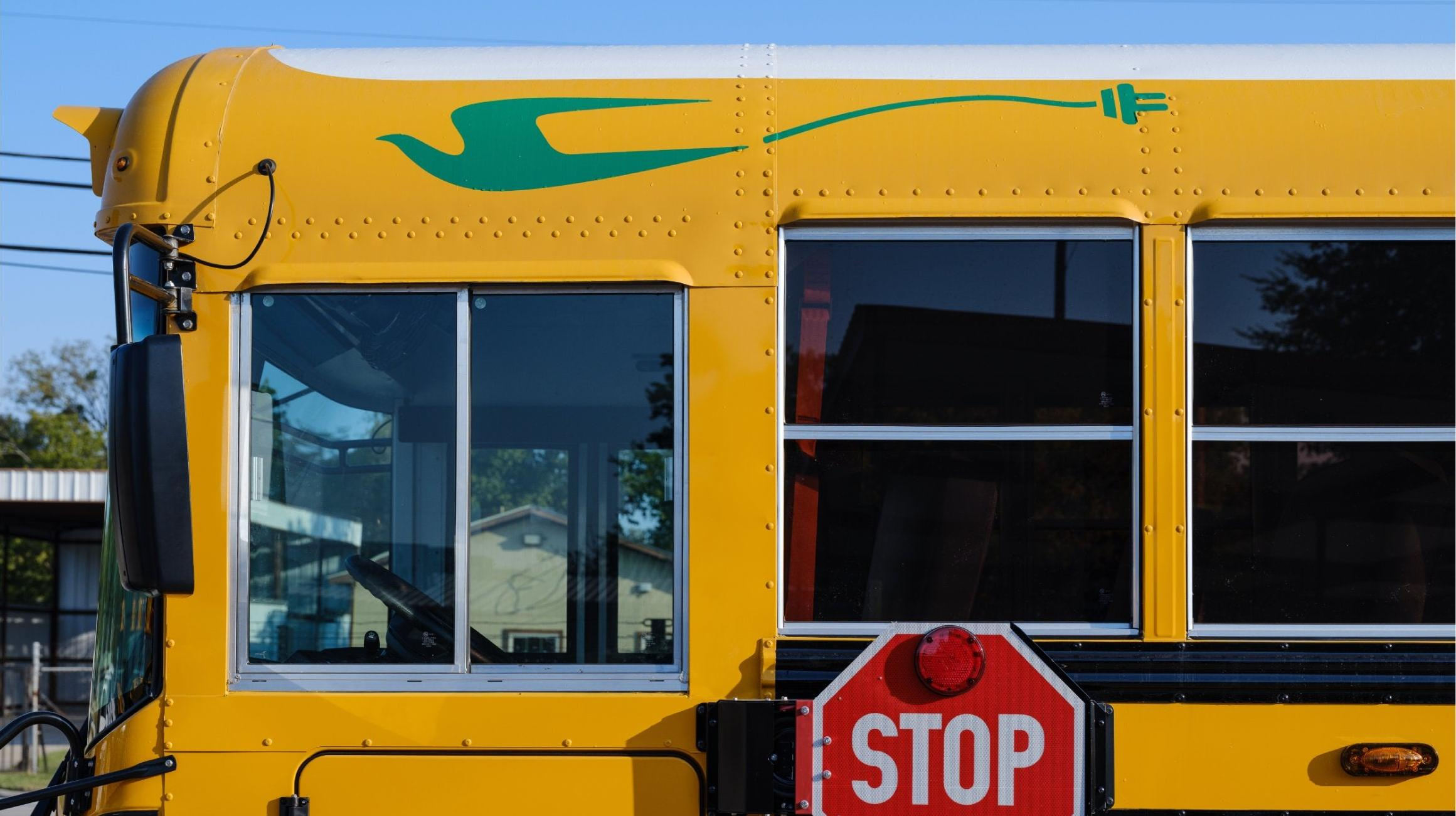School Bus Maker Blue Bird Is Maybe The Most Successful EV Company In The World Right Now
Electric school bus adoption is growing even faster than electric cars
Most electric vehicle manufacturers have seen their stock prices decline across the first half of 2024, but one comparatively tiny company that builds comparatively massive EVs, Blue Bird, the school bus company, is outperforming expectations. Thanks to a $5 billion government incentive program, the company has a 500-unit backlog, and shifted 210 electric kid transport tubes in the first quarter of the year. According to the long-serving bus company, electric school buses now account for nine percent of revenue, and doesn't show any signs of slowing down.
Year-to-date the company's stock, BLBD, is up 114.56 percent, with a huge jump since May.
"This is an entirely different Blue Bird bus revenue and gross margin structure compared with just a year ago with bus prices up significantly," Blue Bird CEO Phil Horlock said on the company's most recent earnings call.
"EV school bus growth is in the early innings. We expect continued strong demand as school districts compete for essentially free buses, with higher, known ASPs over a multiyear period allowing BLBD and industry peers time to drive costs lower before market prices take over," Needham analyst Chris Pierce said.
Electric school buses are pretty much the perfect use case for electrification. These machines are prescribed to drive the same route every single day, and are parked for long periods of time during the school day and overnight every night at the same bus yard. Once school districts pay the subsidized price of a new EV bus, the high cost of fueling massive diesel buses is no longer a burden on the bottom line. With reduced maintenance costs, reduced fueling costs, and increased uptime, these high-use machines could decrease the day-to-day expenses of every school district in the country, when they desperately need it.
Electric school buses are, no doubt, much more expensive than their diesel counterparts to buy upfront, but with money-crunched school districts forced into four-day school weeks and longer combined routes to reduce fuel costs, the hundreds of thousands spent on diesel every year can go instead toward the installation of charging infrastructure and a costlier asset. Hopefully these electric school buses will contribute to better education and balanced budgets.
